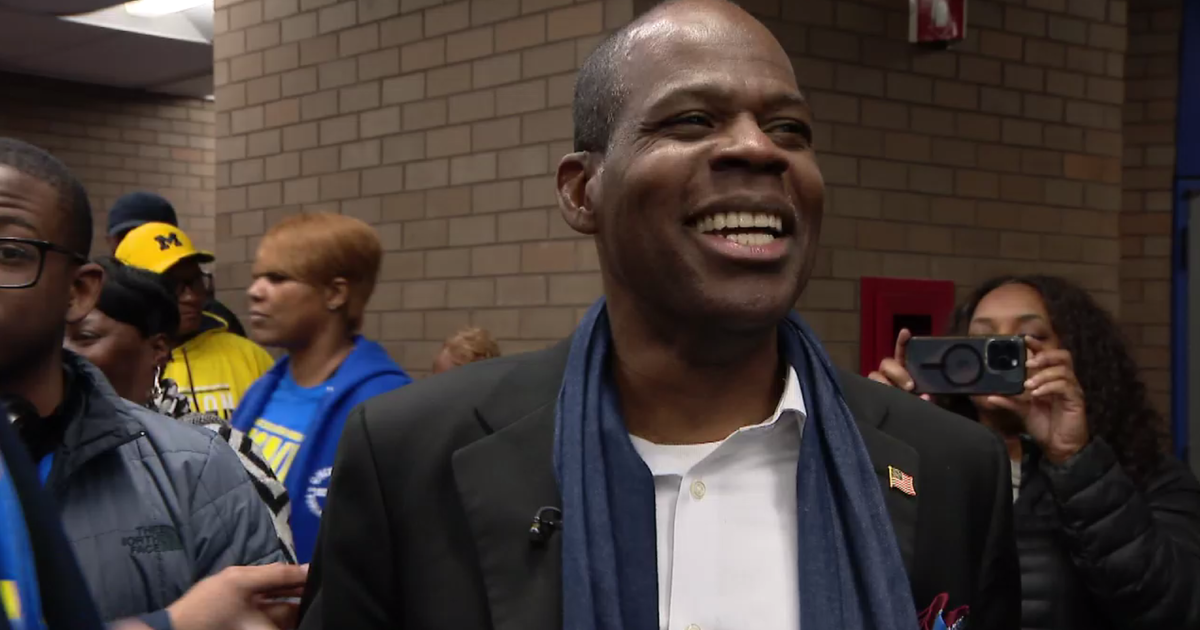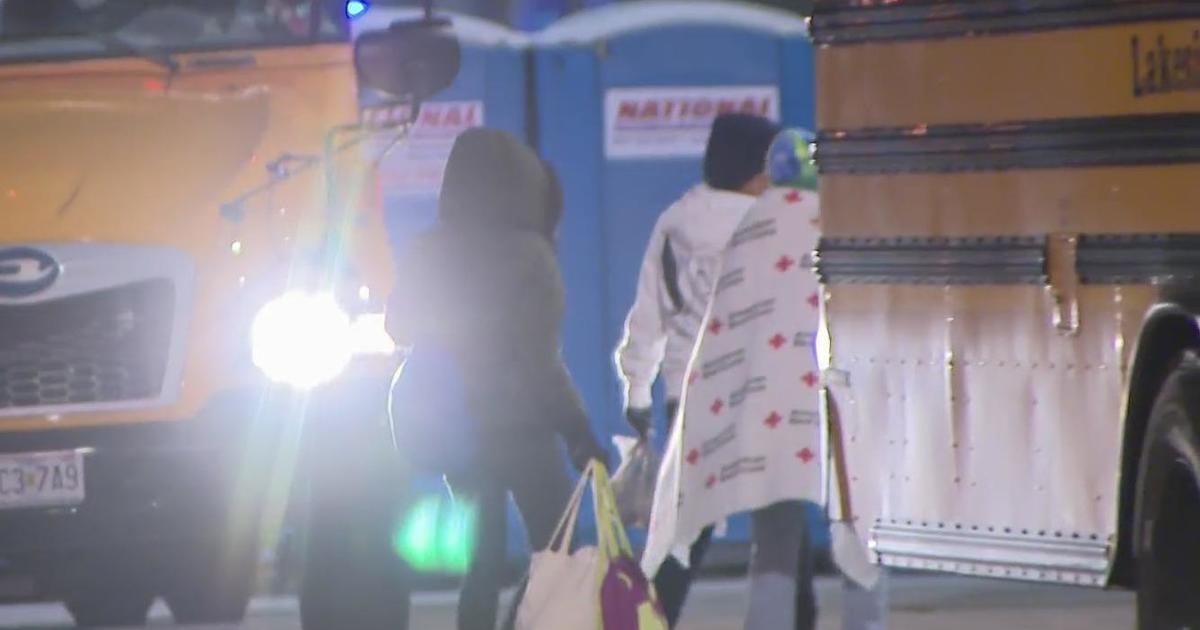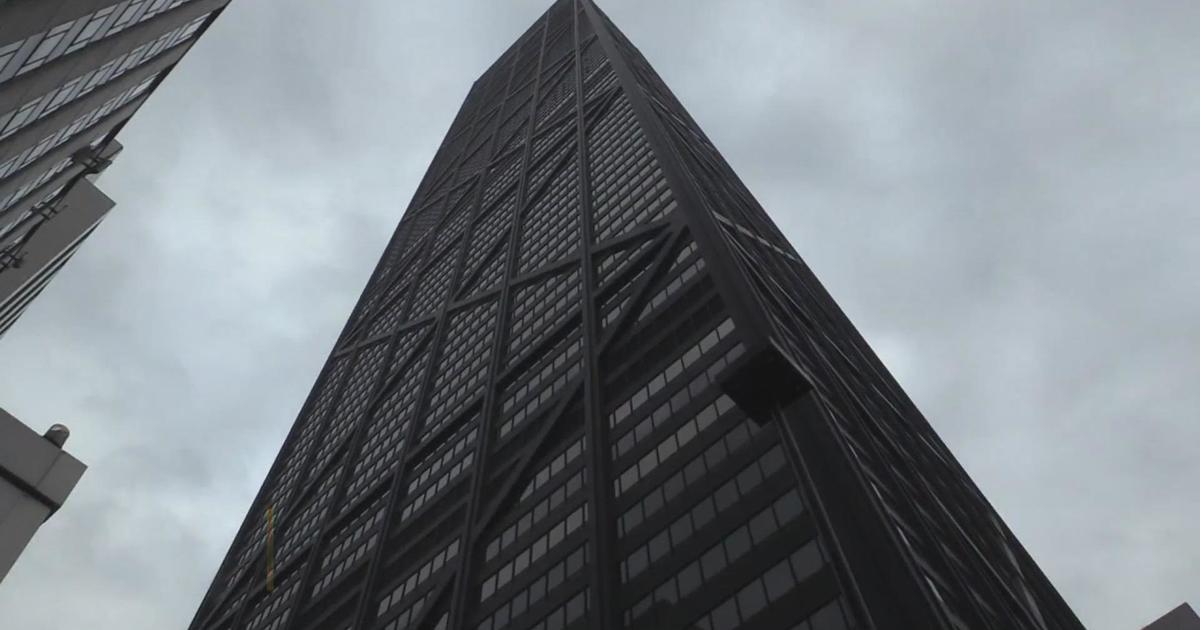2 more measles cases confirmed in Chicago for total of 10; one new case is at migrant shelter
CHICAGO (CBS) -- The Chicago Department of Public Health on Wednesday announced two new confirmed cases of measles – one of which was in the migrant shelter in Pilsen where most of the cases have originated.
This makes a total of 10 cases of measles citywide, and eight associated with the migrant shelter. It is not known where the other new measles patient was exposed.
Two of the 10 measles patients from the shelter have also now been confirmed to be Chicago Public Schools students.
Officials said it could take some time to get the outbreak fully contained. But CBS 2 has learned that 95 percent of those staying in the migrant shelter at 2241 S. Halsted St. have been deemed immune to measles.
Still, experts say it could take weeks before the outbreak is completely contained.
"There are a number of individuals that were working towards a plan for quarantine - particularly vulnerable individuals," Mayor Brandon Johnson said Wednesday, "and we are finding those locations for pregnant people."
Mayor Johnson addressed concerns Wednesday that an ongoing measles outbreak – in which all but one of the cases have been traced back to new arrivals staying in close quarters at the city's largest shelter – could get worse before it gets better.
Over the past few days, the city said it has administered over 900 vaccinees – bringing the percentage of people immune to measles at the shelter up to 95 percent or more.
Those who were exposed, or who are especially vulnerable and cannot be vaccinated – such as pregnant women – have been relocated to hotels, or will soon be moved.
Ald. Byron Sigcho-Lopez (25th) said in a news release Wednesday that the Department of Family Services and the Office of Emergency Management and Communications are working with the State of Illinois to relocate residents to hotels for quarantine.
Previously, Mayor Johnson said the quarantine period is 20 days.
"Of those who are in a particular shelter, at one point, there was some resistance to vaccinations," Mayor Johnson said.
All this comes with the Centers for Disease Control and Prevention on the ground in Chicago to assist in containing the spread. The CDC has reminded people who are unsure if they have been vaccinated to check with their primary providers.
Vaccines are 93 percent effective against infection after one dose, and 97 percent effective after two.
CBS 2 spoke with an expert about just how reliable the measles-mumps-rubella vaccine is. Dr. Larry Kociolek of Lurie Children's Hospital also said more unvaccinated people are likely to get sick before the outbreak is over.
The incubation period for measles is part of the reason why, Kociolek explained.
"It could be two to three weeks before I develop symptoms, and so it usually takes about two or three weeks to know if the measures that we're taking today are effective," he said.
Kociolek said it will probably take weeks before the outbreak is contained – at best. But he said it is highly unlikely that anyone vaccinated would be at risk of catching it.
"So the virus is actually pretty stable, where it doesn't develop an ability to evade the immune response," Kociolek said, "and so the vaccine that we have currently, that we have used for decades, is expected to be quite effective against measles forever, really."
Two of the confirmed measles patients are Chicago Public Schools students staying at the Pilsen shelter. The Chicago Department of Public Health on Wednesday explained how new arrivals attending CPS are eligible for a vaccine exemption – though CPS is still encouraging the shot.
"With regards to new arrivals, they are considered to be, in the circumstance unstably housed - and as a result, they are allowed to have an exemption," said Dr. Michelle Funk, medical director for community congregate settings and disease control bureau at the Chicago Department of Public Health. "The goal here is to balance the needs for students to have the community and mental health education support, while in process of getting connected to a health care provider, and get those vaccines."
It is one thing to stop the spread at the shelter, but another to make sure another outbreak does not happen. CBS 2 asked Mayor Johnson about the efforts to screen people coming into the city's landing zone – where buses arrive at Polk and Desplaines streets.
The mayor said the city is working to shorten the time it takes to see a physician with Cook County Health, and claims the vaccination rate at the landing zone is actually 100%.



